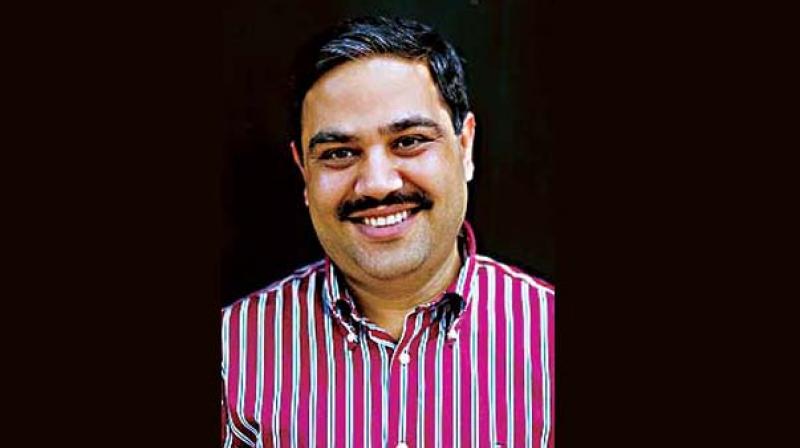A whodunnit set in an ancient temple

Bengaluru: Soft spoken, witty and incredibly warm, it is almost difficult to believe that author Ravi Subramanian writes murder mysteries. Not just your garden variety thrillers either, his books are known to have complex plots, deep and well thought out characters and climaxes that a reader never sees coming.
“Thrillers just happened to me. I’m an accidental thriller writer. It happened and I thought, why don’t I do it to the best of my abilities? Now, maybe that was the banker part in me,” he laughs.
He points out that the reason behind bankers turning into writers today is perhaps their grueling MBA degrees. “All these guys who are successful as writers mostly have an MBA degree. Many may not agree with me, but I think they are a lot more processed and aggressive to reach their goal. Even in books they carry that forward,” he said.
Often called the ‘John Grisham of Banking’, due to his fast paced plots set in banks, he has a banking background.
But, for his latest release titled ‘In the Name of God’, he has wandered off to the road not taken. Set in the famous Sree Anantha Padmanabha Swamy Temple in Thiruvananthapuram, the plots moves back and forth between the temple, Mumbai and Singapore. “I read this story about a researcher who submitted a report to the Supreme Court alleging rampant corruption in the temple. For example, he unearthed an industrial sized gold plating machine in the temple. There were no records of the vaults being opened or closed,” he grins and says, “I just thought it would make an interesting premise.”
His core characters are Aswathi Thirunal Dharmaraja Varma, the titular king of Travancore, who is the custodian of the temple, Kabir Khan additional director of the CBI and Subhash Kapoor, an artifact smuggler.
Three plots simultaneously unfold - the Padmanabha temple murders, a high-profile heist in a jewellery store at the Wafi Mall in Dubai and a series of massive explosions in Mumbai killing hundreds. Khan tries to connect the dots and solve this puzzle only to find secrets that could shake the foundations. The book also gives the reader some softer moments, like the unlikely friendship between a Muslim police officer, investigating a murder that could very well mean accusing the king and a senior state official who is also a part of the case, but is a ‘king bhakt’. Subramanian’s novel walks on a tightrope separating fact from fiction and the author wouldn’t have it any other way.

